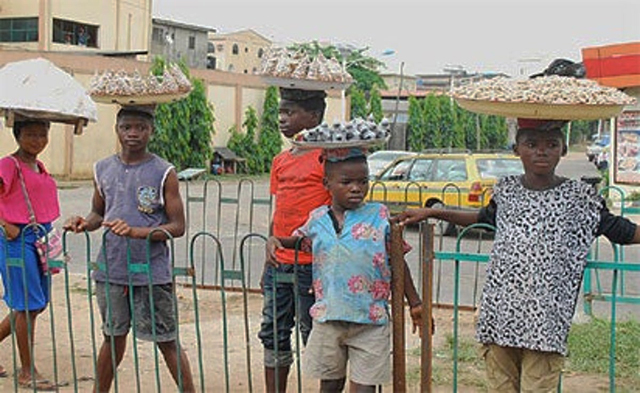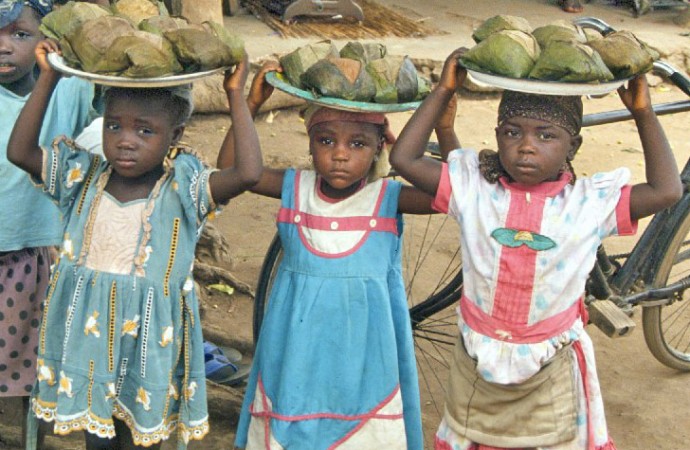Children’s Day: Who Speaks For The Forgotten Child?
Posted on May 27, 2025
PAUL NWOSU

Every 27th of May, Nigeria celebrates Children’s Day, a date marked with joy on calendars, particularly among families whose children are enrolled in public and private schools, and live in relative comfort. Across cities and towns, the day comes alive with parades, carnivals, school competitions, and speeches. Children beam with excitement in crisp uniforms as they march past proud parents and top government officials. Politicians step forward with the usual promises to improve education, enhance healthcare, safeguarding children’s rights.
But as the drums fade and cameras turn away, a more sobering reality quietly persists. For millions of Nigerian children, there is no music, no parade, no celebration. Only silence, hunger, and hardship. While children of the privileged few bask in attention, gifts, and affirmations, others wander the streets with empty bowls, live in makeshift shelters, or wake up to yet another day of forced labor, abuse, or neglect. These children do not know Children’s Day. And if they do, it means nothing to the lives they live.
In northern Nigeria, the almajiri child roams barefoot, bowl in hand, begging for food and survival. They are sent away from their families, sometimes as young as five, in the name of religious education. But what they experience is often a life stripped of care, shelter, hygiene, and dignity. In the East, West, and South, children are hawking goods at busy intersections, working on farms, enduring domestic servitude, or trapped in exploitative situations. The girl-child in many rural areas still faces early marriage, sexual abuse, and lack of access to school. These are not rare exceptions. They are common realities, faced daily by millions of Nigerian minors.

These children have no voice in the public ceremonies. They are not represented in the stadium parades. There are no banners with their names, no television coverage of their dreams, and no space made for their pain. They live in the cracks of our national conscience, forgotten in the glitter of official celebrations.
Children’s Day in Nigeria must now mean something more. It can no longer be a feel-good event for the few, while the many languish in obscurity. The occasion must be reimagined as a national moment for truth-telling, intervention, and impact. If we truly value our children as the future, then that future must begin with action today.
The 27th of May should become a day of mass outreach where agencies, NGOs, and local governments descend on underserved communities to deliver healthcare, meals, psychosocial support, and access to learning. It should be a day when national and state governments release measurable progress reports on child welfare, tracking how many children were rescued from abuse, enrolled in school, or reunited with families.
Children’s Day should be the time when the voiceless are heard through open dialogues, through children’s forums where boys and girls from every class, background, and region share their hopes and fears. Not just children in Abuja or Lagos, but also those in Makoko, Okpoko, Maiduguri, Aba, Jalingo, and the riverine communities of the Niger Delta.
If truly observed, this day can become the most important civic holiday of the year. An opportunity not just to promise, but to perform. The almajiri child must be brought into the education system with care and protection. The girl-child must be empowered to remain in school and reach her full potential. Child labor must no longer be an acceptable sight on our streets. Child protection laws must be enforced, not just signed.
These goals are not unreachable. What they require is honest commitment and moral urgency. Religious and traditional leaders must become partners in this effort. The media must tell the stories of the forgotten child, not just for sympathy, but to provoke conscience and catalyze change.
Nigeria cannot afford to entertain illusions. A nation that parades its children while abandoning millions to fate is not celebrating, it is performing. The children we neglect today are the adults we will fear tomorrow. We must choose now between fleeting fanfare and enduring reform.

Because the real celebration of children does not lie in uniforms and dance steps, but in food on their plates, books in their hands, and dreams in their hearts. When the last parade ends, when the microphones go silent, and the dignitaries depart, the question that must echo in our minds is simple, haunting, and urgent: Who speaks for the forgotten child?
*Paul Nwosu PhD is the Chairman of BeeCharity Outlook Foundation, an advocate group against Child Labour*
Categorised as : Opinion
No Comments »










